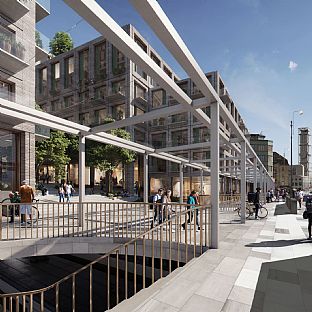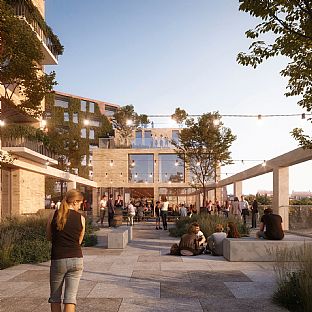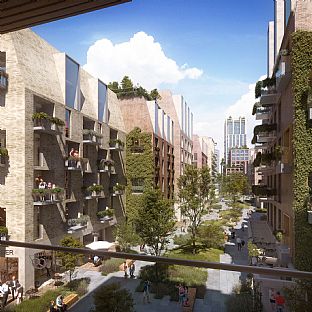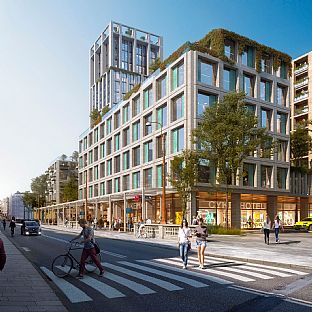Aarhus will gain a completely new district named the Railway Quarter, if in November, Aarhus Municipality decides to proceed with plans for building over the railway at Aarhus Railway Station between Bruuns Bridge and Frederiks Bridge. With its central location in the middle of Aarhus and as a traffic hub through which thousands of people pass every day, the Railway Quarter has the potential to become a green, car-free, and vibrant district for everyone who lives, works and travels through the area.
“We are very pleased to be able to present a clear vision of a completely new, green and car-free district which binds the city together and will benefit all citizens of Aarhus. We are very much looking forward to our masterplan proposal being included in the upcoming public debate on the area's development, so that the urban potential of this central location in the heart of Aarhus can be realised and utilised for the benefit of all,” says Michael Kruse, partner and architect at CF. Møller Architects.
Green district for everyone
Where before there was only room for trains, the new area covering the tracks will have space for everything - trains, parking for cars and bicycles, new green areas, and space for new homes and workplaces. This new car-free urban environment with pedestrian paths, bike streets, and green urban spaces will reunite Frederiksbjerg with the city centre. The area will be a district for everyone - citizens, residents, and visitors, making it easy and convenient to use and switch between different sustainable modes of transport.
“The new district will mark a historic change in the most central part of Aarhus, which is why we have approached the task both with great humility to ensure understanding of the context, and with soaring ambition to create the framework for guaranteeing the area's development has the best conditions for success of an international calibre,” says Michael Kruse.



